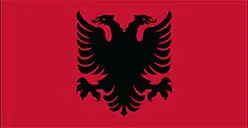 The Albania unicameral parliament, the Kuvendi, has placed a ban on all large forms of gambling including sports betting in a recent law passed in parliament.
The Albania unicameral parliament, the Kuvendi, has placed a ban on all large forms of gambling including sports betting in a recent law passed in parliament.
The move, is among other things, aimed at curtailing compulsive gambling, match-fixing and organised crime organisations linked to gambling.
The law passed on October 25, 2018, and was one of Albania’s Prime Minister Edi Rama’s ultimate goals to curb the ever-growing gambling activities in the country.
The news has been met with fierce opposition by gambling operators in the country who have vowed to challenge the implementation of the new law and seek compensation for the termination of their legal gambling licences.
Despite being one of the poorest countries in Europe, Albania is engulfed with a high rate of corruption, drug trafficking and organised crime, which successive governments have been struggling to address.
Gambling and sports betting have become one of the major industries in the country with about 4,200 sports betting offices serving the 2.8 million population.
The official annual sports wagers in the country are placed at 150 million euros ($171 million) while analysts place it at 700 million euros ($799 million) including illegal wagers. The increase in gambling activities in the country has led to the rise in illegal casinos and sports betting venues; and has becoming a source of worry for the government.
Last March, the country witnessed a sports betting scandal, when the Union of European Football Associations (UEFA) formally banned Skenderbau soccer club for ten years and fined them one million euros for about 50 counts of match-fixing.
This and many other incidences led to Prime Minister Rama’s October 10 announcement to ban “sports betting as well as any bet for every kind of race involving horses, dogs, or any kind of slave of the Albanian fauna.”
That aside, he announced a decision to move all electronic casinos from urban centres and implement a ban on gambling ads, all be implemented from January 2019.
Opposition parties in the country joined players in the gambling industry in criticising the new law with claims that the government’s ban on gambling is to monopolise the industry in favour of the government-approved online gambling company.
The opposition parties, therefore, boycotted the vote on October 25, so out of the 140 members of the Kuvendi 75 voted for the legislation, with no against.
With this aside from venues located in designated tourist areas, non-residential areas and five-star hotels, all physical gambling venues would be closed by January 2019.













